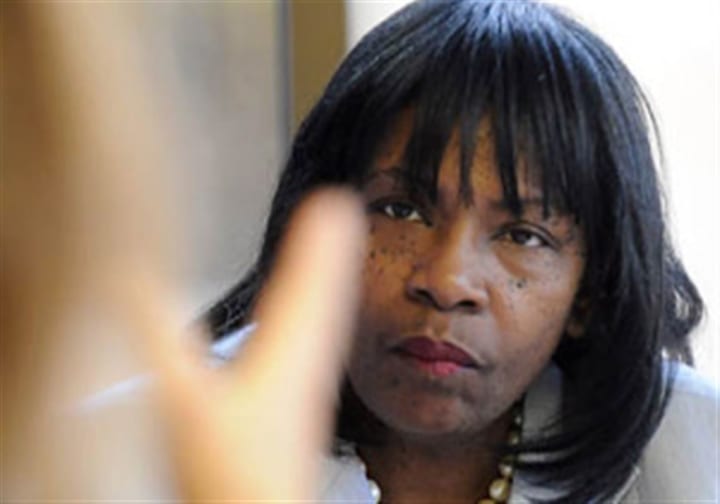Economics 101 in Action
Police gun buyback programs have become a staple across the country to take guns off the streets. What happens, though, when someone makes those wanting to trade-in their firearms for cash, prizes, or gift cards a higher offer?

You want to see how the free market works? You want to see economic principles come to life? You want to see the "invisible hand" of capitalism in action? Well, a recent story out of Pennsylvania illustrates why the laws of supply and demand work—not in mysterious ways, but in very, highly predictable ways—and in ways that would make the authors of Freakonomics oh so very proud!

This story comes to us from the town of Wilkinsburg, Pennsylvania, a city on the outskirts of the Pittsburgh metropolitan area. Their police department recently did something that has become routine in cities both large and small across the country. They conducted a gun buyback program, in which they invited the community to bring in weapons of all kinds—no questions asked—and exchange their guns for gift certificates. Gun buyback programs—whether the exchange is for cash, electronics or other items, or gift cards/certificates—have proven to be wildly successful all over the United States. And as a result of such gun buyback offers, many, many thousands of guns—legal and illegal, and often quite frightening in both type and quantity—have been turned in to police departments all over the land—and most of the time, the guns are turned in with "no questions asked."
And Wilkinsburg's program earlier this month fit this model to a "T." They were offering residents $50 to turn in handguns and $25 to hand over rifles to law enforcement, no questions asked. When over a hundred citizens showed up to participate in the buyback, the police department actually ran out of gift certificates to the regional Giant Eagle supermarket chain to provide to those citizens wishing to turn in their weapons to do their Christmas shopping—and take the guns off the street! They even invited those in line with more guns to come back the following Monday when they would have the opportunity to get more gift certificates.
And so there was certainly an economic motive to get the folks to hand over their weapons in this instance—and it worked well, as such programs have proven all over the land. However, the story in Wilkinsburg took a really interesting economic twist thanks to a man by the name of Michael Cornell. Cornell had an interesting proposition that he approached those in the gun buyback line with—namely he was willing to top the city's gift certificate offer with more cold, hard cash than what the citizen would get from the authorities for turning in their firearm!
As the TV news in Pittsburgh reported, this turned the line for the gun buyback into an impromptu "street corner competition" for the weapons between Cornell and the police department. Those in line had to internally decide a question worthy of a chapter in Freakonomics that was right in front of them: Should they turn over their weapons to the authorities, or should they take a higher offer from the man claiming to be a "gun collector" who was propositioning them in line?

Wilkinsburg, PA Police Chief Ophelia "Cookie" Coleman
Now, as you can well imagine, the police department was not too thrilled to be having competition for its gun buyback program. Their reaction went to an even higher level when it was discovered that the better offers were coming from not just a citizen, but another law enforcement officer! It turns out that Michael Cornell was a constable for nearby Butler County!
Was what Cornell was doing actually illegal? Well, that is an interesting question, and it is one that may well be decided if charges are indeed brought against him and the case gets adjudicated. However, whatever the legal fate of his case, one has to ask a simple question: Why hasn't anyone tried this before? You do have to applaud Cornell for his understanding of economic principles. He believed that if he were to offer a better return to those waiting in the gun buyback line than what they could hope to receive from the authorities, many of those in line would take him up on his offer to get a better financial reward buy selling their unwanted weapons to him as a "gun collector" than turning them over to the city. He understood the basics of pricing and bet that those in line would take his better offer, not to mention the convenience of not having to wait in line anymore!
This story is thus truly an illustration of Economics 101 in action. And it is also testament to the goodness of the people there in line on that cold December morning in Wilkinsburg, Pennsylvania. This is because rather than simply "taking the money and running," several citizens alerted the police on duty as to Cornell's proposition for them and that quickly brought an end to his efforts to increase the holdings of his gun collection. And yet, you have to—in a weird way—admire both his determination and his understanding of economic principles, as Cornell sought to take advantage—whether rightly or wrongly, legally or illegally, sinisterly or "just looking for bargains"—of the opportunity to cash in on the city's gun buyback program.
Connect with the Author
Want to learn more about the work of Professor David C. Wyld? Connect with him here.
About the Creator
David Wyld
Professor, Consultant, Doer. Founder/Publisher of The IDEA Publishing (http://www.theideapublishing.com/) & Modern Business Press (http://www.modernbusinesspress.com)






Comments
There are no comments for this story
Be the first to respond and start the conversation.